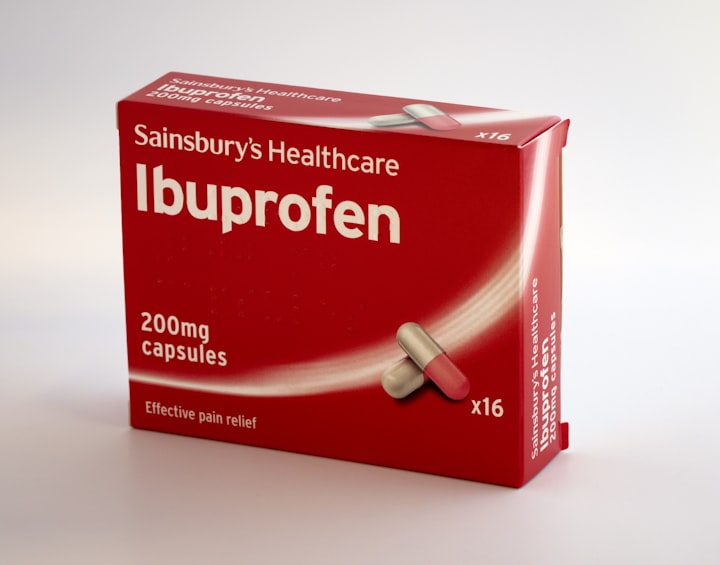Can Ibuprofen Relieve Pain Caused by Prostatitis?
Can you take ibuprofen to relieve pain caused by prostatitis?

Prostatitis, a common urological disorder, is primarily characterized by inflammation of the prostate gland due to complex reasons. It ranks as the foremost urological ailment among males under 50 years old. Prostatitis involves inflammatory lesions of the prostate, which can stimulate prostate tissue mucosa, resulting in local pain, swelling, and associated symptoms like frequent and painful urination, along with fever. Ibuprofen tablets possess antipyretic and analgesic properties, effectively mitigating local pain, fever, and related symptoms arising from prostatitis.
The mechanism of ibuprofen centers on diminishing prostaglandin synthesis, which otherwise causes tissue congestion, swelling, and pain. Consequently, ibuprofen can alleviate the swelling and pain linked to prostatitis. Furthermore, it inhibits the release of white blood cells in the body, thus reducing nerve sensitivity to bradykinin and significantly dampening pain responses.
Ibuprofen is a clinically recognized pain-reliever, primarily employed for mild to moderate pain alleviation. It can be combined with other medications to enhance their mutual pain-relief effects while concurrently reducing side effects. For example, it can be used in conjunction with anticonvulsant drugs like gabapentin and pregabalin for treating mild to severe pain. Additionally, ibuprofen can be co-administered with opioids or weak opioids to address various levels of pain severity.
It is crucial to note that as a non-steroidal anti-inflammatory, antipyretic, and analgesic medication, the dosage and duration of oral intake should be carefully controlled. Prolonged or excessive oral consumption of non-steroidal drugs may irritate or severely damage the gastrointestinal mucosa.
Patients with prior inflammation or ulcers of the gastrointestinal mucosa may experience gastrointestinal bleeding or severe side effects such as perforation upon long-term and high-dose ibuprofen use. Hence, it is advisable to refrain from blind or excessive usage and to adhere to medical guidance.
Ibuprofen can provide pain relief but does not offer a fundamental cure for prostatitis. Patients should not rely solely on it. The primary objective is to comprehensively address prostatitis through various means. The following treatment methods for prostatitis are recommended:
1. Antibiotic Treatment
Antibiotics are commonly prescribed to combat prostatitis. However, due to the inability of most antibiotics to penetrate the lipid membrane of the prostatic epithelium, their therapeutic effect may not be optimal.
2. Herbal Medicine
Natural herbal treatments, such as the utilization of Diuretic and Anti-inflammatory Pills, have demonstrated considerable efficacy when employed as therapeutic interventions for the management and alleviation of the symptoms associated with the chronic variant of prostatitis, thereby offering a potentially valuable approach to addressing this condition.
3. Injection Therapy
Directly injecting antibiotics into the prostate emerged as a treatment method to overcome the challenge of achieving effective antibiotic concentrations in the prostate through systemic administration. This approach provides valuable treatment, particularly for refractory and chronic prostatitis.
Additionally, patients with persistent prostatitis should regulate their daily habits:
- Refrain from alcohol consumption to prevent exacerbating congestion and edema.
- Avoid consuming spicy and stimulating foods that can worsen inflammation.
- Avoid prolonged sitting to alleviate pressure on the prostate. It can significantly contribute to the alleviation of undue pressure exerted on the prostate gland, thus aiding in the prevention of potential complications or discomfort associated with prolonged pressure on this vital organ.
- Practice moderate and regular sexual activities to prevent frequent prostate congestion.
- Maintain a positive mindset, as psychological factors can contribute to prostatitis.
- Engage in suitable physical exercises like jogging and walking to enhance immune function and local blood circulation.
Seeking guidance and assistance from a qualified and experienced healthcare professional is of utmost significance, as this proactive measure facilitates the attainment of accurate and comprehensive diagnostic evaluations, personalized treatment strategies, and expert guidance that is thoughtfully tailored to cater to the unique and specific requirements of each individual's medical condition and well-being.
About the Creator
Amanda Chou
Looking to restore your life troubled by prostatitis, epididymitis, seminal vesiculitis and other male reproductive system diseases? Here are the resource to help you in this endeavor.






Comments
There are no comments for this story
Be the first to respond and start the conversation.